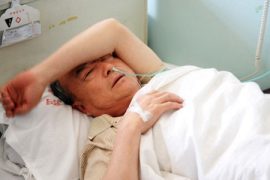When Health Is No Longer Wealth

Photo Credit: Disease and Conditions
By Demola Adeleke, Eneje Vitus & Anderline Alaoma
Have you ever pondered upon the popular saying “health is wealth” to ascertain its correctness? Well, reverse seems to be the case for those who pay princely sums on drugs just to maintain an illness because to them, they believe “wealth is health”.
Over the years, it has been recorded that the rate of those living with one life threatening disease or the other in Nigeria has drastically sprung up. However, these diseases like hypertension, diabetes mellitus, Human Immuno Deficiency Virus (HIV), asthma and so on can often result in untimely death if not given a close and thorough medical attention.
Prior to the 21st century, diseases like diabetes and high blood pressure were strictly attributed to the elderly people, but in recent times, they have also penetrated the middle age, perhaps, seeming like one of the causes of the upsurge in the statistics of bearers of these kinds of diseases.
One important question that we should ask is, how cheap or costly is it for the sufferers of these diseases to manage or bring these diseases under control. Well, unlike headache or stomachache that could be cured with just a single dose of locally made medicinal substances, these diseases are mostly incurable and in most cases, they are only subjected to monitoring measures which are often expensive.
Worthy of note, is the fact that these illnesses are not only peculiar to a particular social class or a defined set of people, they are found among the educated and the illiterate, the rich and the poor, civil servants and traders etc. Taking this into consideration, one could see that this afore mentioned set of people have varying financial background and therefore, some with weak financial status may not find it funny purchasing these expensive drugs and injections needed to regulate the harmful effects of these illnesses.
Speaking on the reason behind the high cost of the drugs and injections taken by the sufferers of these diseases to soften their hazards, Mr. Adewole Atanda, a Pharmacists said that most of the drugs; e.g. the diabetes tablets among others, are not produced here in Nigeria because the materials needed to manufacture them are not locally available. As a result, the drugs are only imported into Nigeria from other countries, hence, making them very scarce and expensive to come by.
Since time immemorial, it has always been a big challenge for those with weak financial background to purchase these expensive drugs which are sometimes defined as the holders of their lives by physicians because in most cases, sufferers of these diseases are to continue taking these drugs till their dying day. Besides, it is pertinent to know that these drugs are often times prescribed to be used regularly in which failure to do so may end up in an undesirable outcome. In the face of the current economic decline in Nigeria, these drugs which have originally been pegged at an unaffordable price had also followed the trend of inflation in the market, thereby, making it nearly impossible for the average man and most salary earners and pensioners who suffer from these illnesses and whose salaries and pensions are not paid regularly to buy these drugs.
Apparently, the high costs of these drugs has handicapped a good percentage of the sufferers of life threatening diseases from following the exact prescriptions of their doctors since the drugs are not pocket friendly and sometimes, they are only left with the option of skipping the drugs and hope not to experience its repercussion.
In an interview with Mr. Oyekunle Wahab, a retired teacher who suffers from diabetes, he said that 50 percent of his monthly pension is always spent on his medications ever since the doctor diagnosed him with diabetes.
“Out of the N30, 000 I receive monthly as my pension, I spend over N15, 000 buying strips for my blood sugar test and the Insulin injection to regulate the level of sugar in my blood. But recently, government only pays our pension once in 3 months and this has stopped me from checking the level of sugar in my blood because my strips have been exhausted and to buy another one now, I will need to have N3, 000 with me” he said.
Speaking on the risks of not using these drugs as prescribed, a medical expert, Dr. Oyewale Durojaiye said that if a patient who suffers from one of these diseases, e.g. hypertension, fails to take the proper dosage of his drugs, it may result to hypertensive retinopathy which damages the retinal and in most cases, can lead to cerebrovascular damage which is popularly known as stroke.
Drawing conclusions from this inability of the sufferers of these diseases to afford the high price of these drugs, it is no doubt that a long term abandonment of these drugs may result into the worst state of these diseases and in most cases, death. This may lead to increase in mortality rate in a country if proper measures are not taken to cut down the high cost of these drugs.

